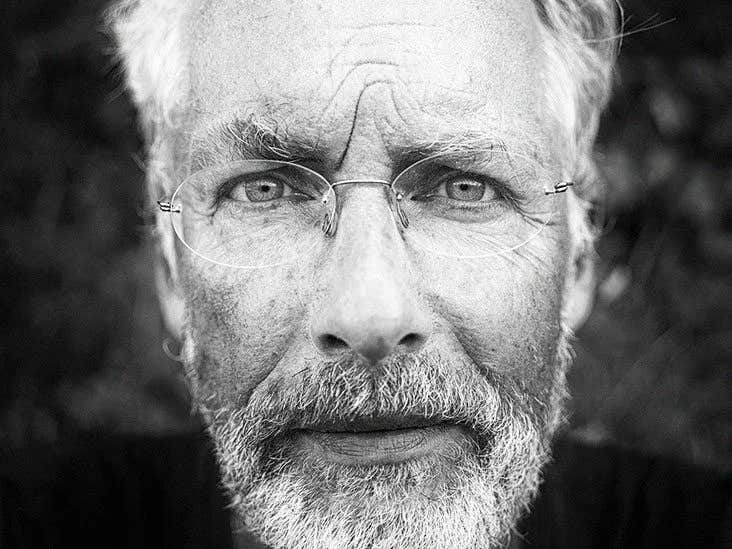Researchers uncover the maximum age a human can reach
As modern life expectancy continues to rise there’s been heightened interest in understanding just how old humans can potentially grow

In a groundbreaking revelation, Dutch researchers believe they've uncovered the elusive "ceiling" of the human lifespan. (CREDIT: Creative Commons)
In a groundbreaking discovery, Dutch researchers believe they've uncovered the elusive "ceiling" of the human lifespan. As modern life expectancy continues to rise due to advances in nutrition, improved living conditions, and progressive medical care, there's been heightened interest in understanding just how old humans can potentially grow.
The new study offers a startling perspective.
Utilizing a comprehensive dataset that tracked the exact age at death for approximately 75,000 Dutch individuals, expert statisticians from Tilburg and Erasmus universities in Rotterdam have posited a maximum age limit for women at an astonishing 115.7 years.
The male counterpart, interestingly, nudges slightly below at 114.1 years. This invaluable data stretches over a remarkable three decades, providing a solid foundation for the researchers' claims.
Related Stories
Professor John Einmahl, one of the leading scientists behind the study, shared some insight into the findings. "On average, people live longer, but the very oldest among us have not gotten older over the last thirty years," he remarked in a recent interview with AFP.
Einmahl's observations underscore a fascinating paradox. He elucidated, "There is certainly some kind of a wall here. Of course, the average life expectancy has increased," highlighting that the number of individuals in The Netherlands celebrating their 95th birthday has almost tripled in recent times. "Nevertheless, the maximum ceiling itself hasn't changed," Einmahl emphatically noted.
For clarity, it's essential to differentiate between 'lifespan' and 'life expectancy'. The former relates to the duration of life for an individual, while the latter represents the average expected life duration for individuals within a specific age group. Life expectancy typically serves as a metric indicating societal wellbeing.
Professor John Einmahl, one of the leading scientists behind the study. (CREDIT: Creative Commons)
This recent Dutch exploration resonates with findings from US-based researchers last year. While they too identified a similar age ceiling, they posited that those exceptionally aged weren’t living quite as long as their predecessors. However, Einmahl and his team challenge this notion.
Employing a unique statistical approach known as the "Extreme Value Theory", they concluded that the maximum lifespan has exhibited almost negligible fluctuations.
Jeanne Calment, the French supercentenarian, defied all odds by living to the remarkable age of 122. (CREDIT: Creative Commons)
For those unfamiliar, the Extreme Value Theory is a sophisticated statistical methodology primarily utilized to interpret data and address questions related to extreme events – think lifespans, natural disasters, and other outliers.
Still, like every rule, there are exceptions. Einmahl cites the case of Jeanne Calment, the French supercentenarian, who defied all odds by living to the remarkable age of 122 years and 164 days. To date, she remains the oldest verified woman.
Extreme value theory is used to model the risk of extreme, rare events, such as the 1755 Lisbon earthquake. (CREDIT: Wikipedia)
As the scientific community awaits further validation, Einmahl announced that their pioneering findings are en route for submission to a peer-reviewed journal. He anticipates its publication "within the next month or so".
As we look to the future, studies such as these are more than mere statistics. They prompt profound questions about the human condition, the nature of our existence, and the interplay of biology and environment. The "ceiling" might be set, but the conversation about human potential is limitless.
Note: Materials provided by The Brighter Side of News. Content may be edited for style and length.
Like these kind of feel good stories? Get the Brighter Side of News' newsletter.
Joseph Shavit
Head Science News Writer | Communicating Innovation & Discovery
Based in Los Angeles, Joseph Shavit is an accomplished science journalist, head science news writer and co-founder at The Brighter Side of News, where he translates cutting-edge discoveries into compelling stories for a broad audience. With a strong background spanning science, business, product management, media leadership, and entrepreneurship, Joseph brings a unique perspective to science communication. His expertise allows him to uncover the intersection of technological advancements and market potential, shedding light on how groundbreaking research evolves into transformative products and industries.
